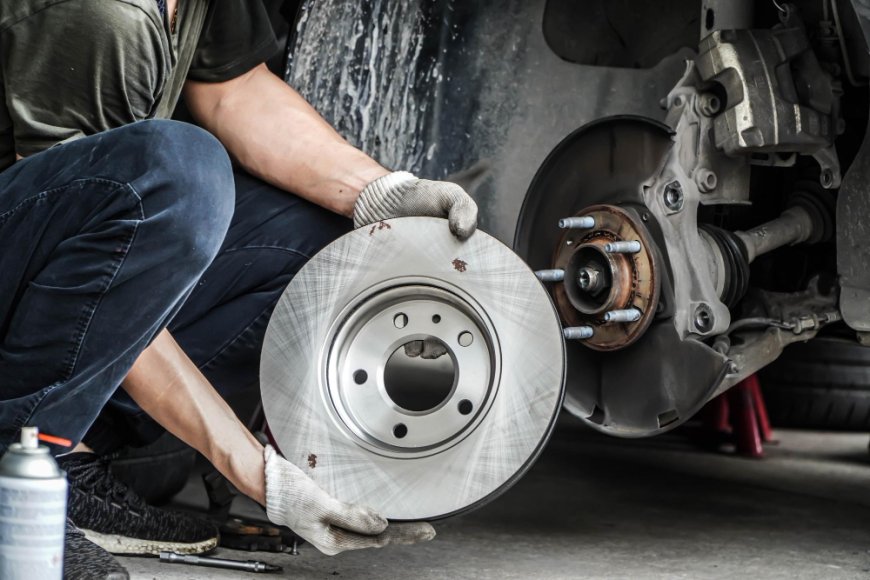The Essential Role of Auto Mechanics in Keeping Vehicles Running Smoothly

Auto mechanics are the unsung heroes of the modern roadways, tasked with the critical responsibility of ensuring vehicles operate safely and efficiently. From routine maintenance to complex repairs, these skilled professionals play a vital role in keeping cars, trucks, and SUVs in optimal condition. This article explores the multifaceted world of auto mechanics, delving into their expertise, responsibilities, and the importance of their work in today's automotive industry.
The Expertise of Auto Mechanics
Auto mechanics are highly trained professionals who possess a deep understanding of automotive systems and technology. They undergo rigorous education and often earn certifications that validate their skills and knowledge. These certifications may come from organizations like the National Institute for Automotive Service Excellence (ASE), which tests mechanics on various aspects of vehicle repair and maintenance.
Mechanics are proficient in diagnosing problems using both traditional methods and modern diagnostic tools. They are adept at interpreting engine codes, conducting performance tests, and identifying issues that affect vehicle performance. This expertise allows them to recommend and perform necessary repairs efficiently.
Responsibilities of Auto Mechanics
The responsibilities of an auto mechanic encompass a wide range of tasks, all aimed at ensuring vehicles operate safely and reliably. Here are some primary responsibilities:
Routine Maintenance: Mechanics perform routine services such as oil changes, tire rotations, and brake inspections. These preventive measures help extend the lifespan of vehicle components and prevent costly repairs down the road.
Diagnostic Testing: When a vehicle exhibits symptoms of malfunction, mechanics use diagnostic equipment to pinpoint the issue accurately. This may involve testing electronic systems, inspecting mechanical components, or conducting performance evaluations.
Repair and Replacement: Auto mechanics repair or replace faulty parts, ranging from spark plugs and belts to more complex components like transmissions or engine blocks. They follow manufacturer guidelines and use quality parts to ensure repairs meet industry standards.
Advising Customers: Mechanics often interact directly with vehicle owners, explaining repair options, costs, and the importance of certain maintenance tasks. Clear communication is essential in helping customers make informed decisions about their vehicles.
Staying Updated: Given the rapid advancements in automotive technology, mechanics must stay current with industry trends, new diagnostic techniques, and evolving vehicle systems. Continuous learning and training are integral to maintaining expertise in this field.
Importance of Auto Mechanics in the Automotive Industry
Auto mechanics play a crucial role in maintaining vehicle safety, reliability, and performance. Here are key reasons why their work is indispensable:
Safety: Properly maintained vehicles are safer to operate, reducing the risk of accidents due to mechanical failures. Mechanics ensure that critical systems such as brakes, steering, and suspension are in optimal condition.
Longevity: Regular maintenance performed by mechanics helps extend the lifespan of vehicles. By addressing minor issues promptly and conducting preventive maintenance, mechanics help prevent major breakdowns that could prematurely retire a vehicle.
Economic Impact: Efficiently operating vehicles contribute to the economy by reducing fuel consumption and minimizing emissions. Mechanics help optimize vehicle performance, which can lead to cost savings for owners over time.
Customer Trust: Auto mechanics build trust with customers through reliable service and transparent communication. By delivering quality repairs and honest assessments, they foster long-term relationships that benefit both the shop and the vehicle owners.
Technical Expertise: As vehicles become more complex, the role of mechanics becomes increasingly specialized. Their ability to diagnose and repair advanced systems such as hybrid engines or electronic stability controls is crucial to maintaining modern vehicles.
Challenges Faced by Auto Mechanics
Despite their expertise, auto mechanics face several challenges in their profession:
Technological Advancements: Keeping pace with rapid technological advancements requires ongoing training and investment in new tools and equipment.
Diagnostic Complexity: Modern vehicles have intricate electronic and computer systems that require specialized knowledge to diagnose and repair accurately.
Customer Expectations: Managing customer expectations, particularly regarding repair costs and timelines, can be challenging. Mechanics must balance technical accuracy with clear, understandable communication.
Physical Demands: The job can be physically demanding, involving prolonged periods of standing, lifting heavy parts, and working in various environmental conditions.
Industry Reputation: Negative stereotypes or perceptions about auto repair shops can impact how customers perceive mechanics. Building and maintaining a positive reputation is essential for business success.
The Future of Auto Mechanics
Looking ahead, the future of auto mechanics is likely to be shaped by ongoing technological advancements and shifts in consumer preferences. Electric vehicles (EVs), for example, present new challenges and opportunities for mechanics trained in handling battery systems and electric drivetrains. Additionally, the integration of artificial intelligence (AI) into diagnostic tools may streamline troubleshooting processes, requiring mechanics to adapt to new methods of repair and maintenance.
Despite these changes, the core principles of auto mechanics—expertise, reliability, and commitment to vehicle safety—will remain fundamental. Mechanics will continue to play a pivotal role in ensuring that the cars of today and tomorrow operate smoothly, efficiently, and safely on the roads.
Conclusion
In conclusion, auto mechanic are indispensable professionals whose expertise ensures the reliability, safety, and longevity of vehicles. Their technical skills, dedication to ongoing learning, and commitment to customer service contribute significantly to the automotive industry and the daily lives of vehicle owners. As vehicles evolve and technologies advance, the role of auto mechanics will continue to adapt, reaffirming their status as essential guardians of the modern roadways.
What's Your Reaction?
 Like
0
Like
0
 Dislike
0
Dislike
0
 Love
0
Love
0
 Funny
0
Funny
0
 Angry
0
Angry
0
 Sad
0
Sad
0
 Wow
0
Wow
0











































